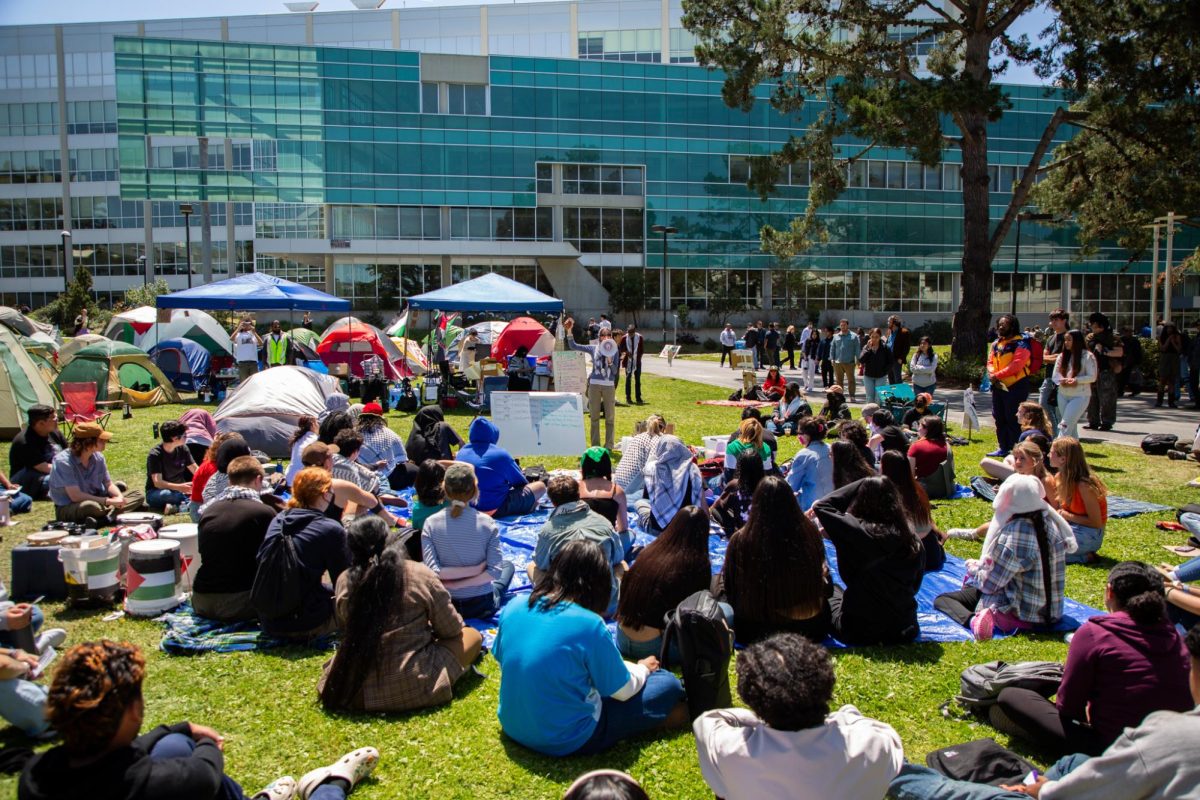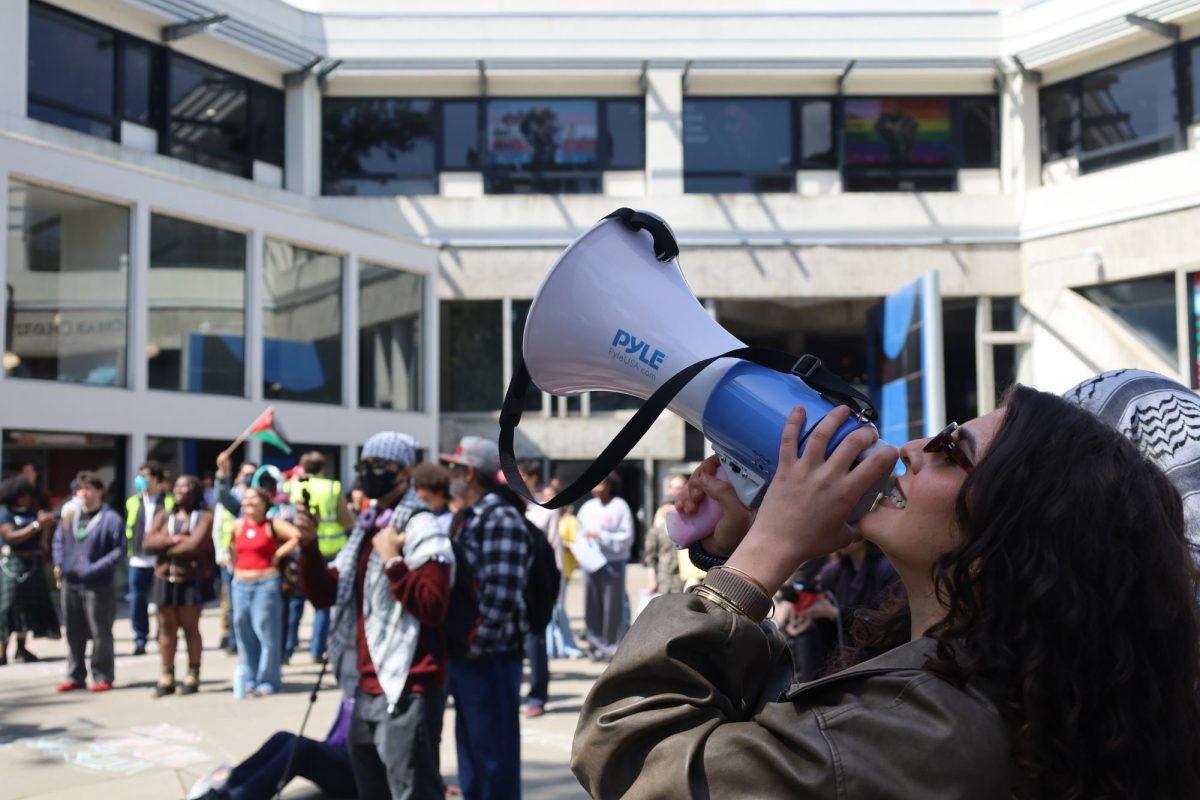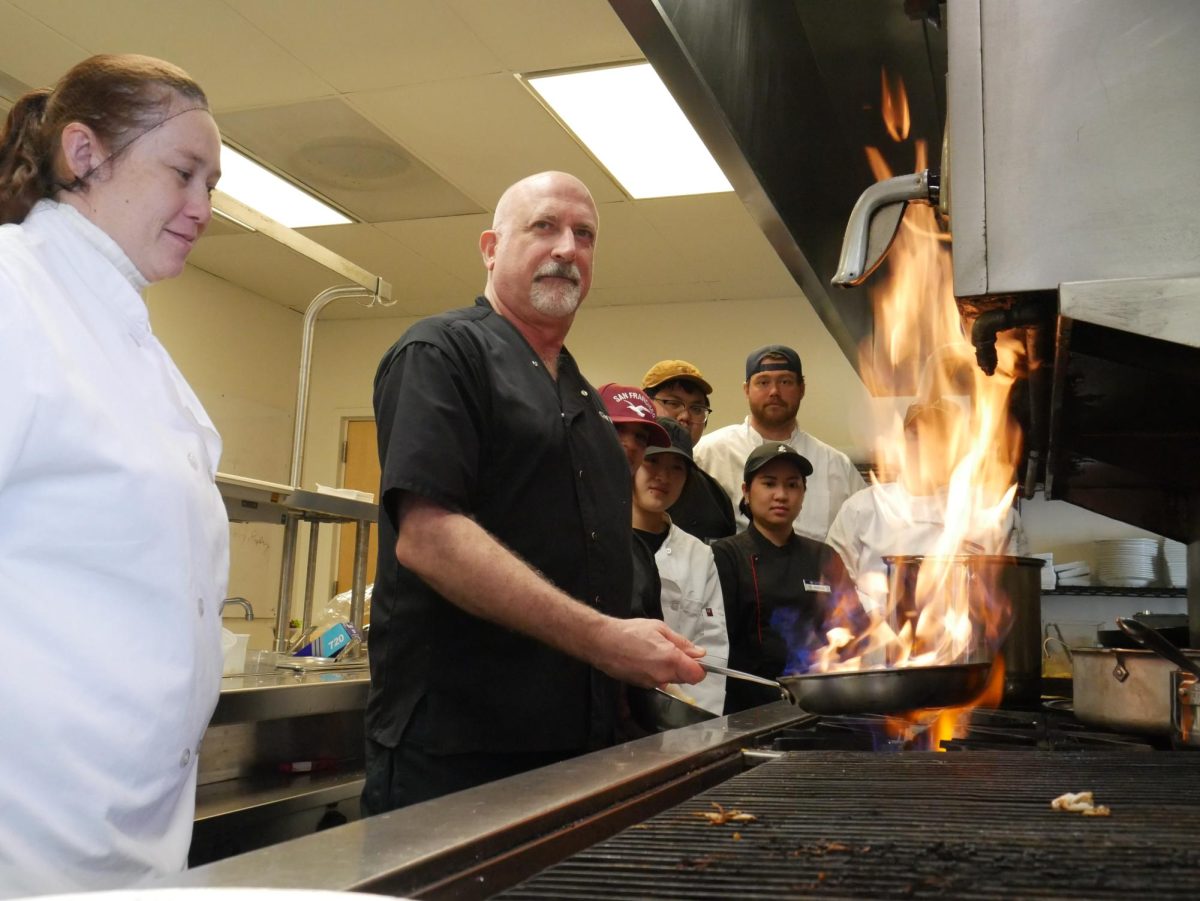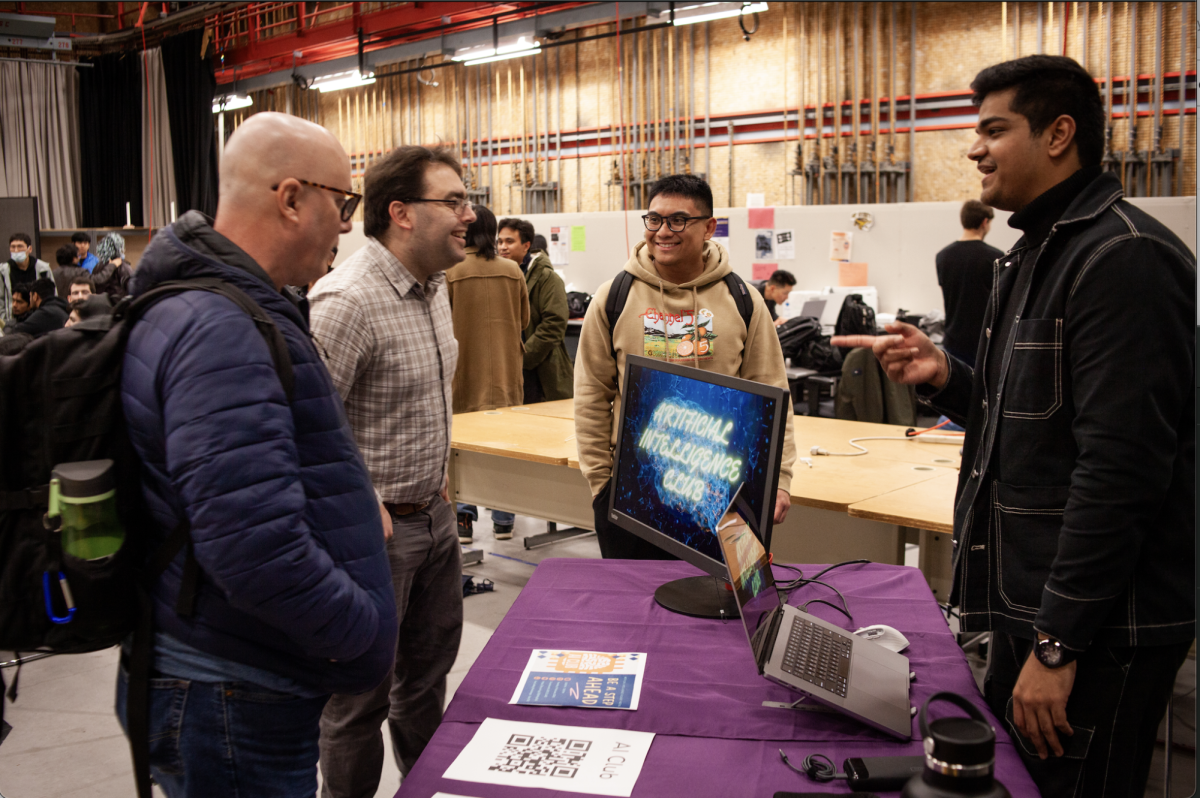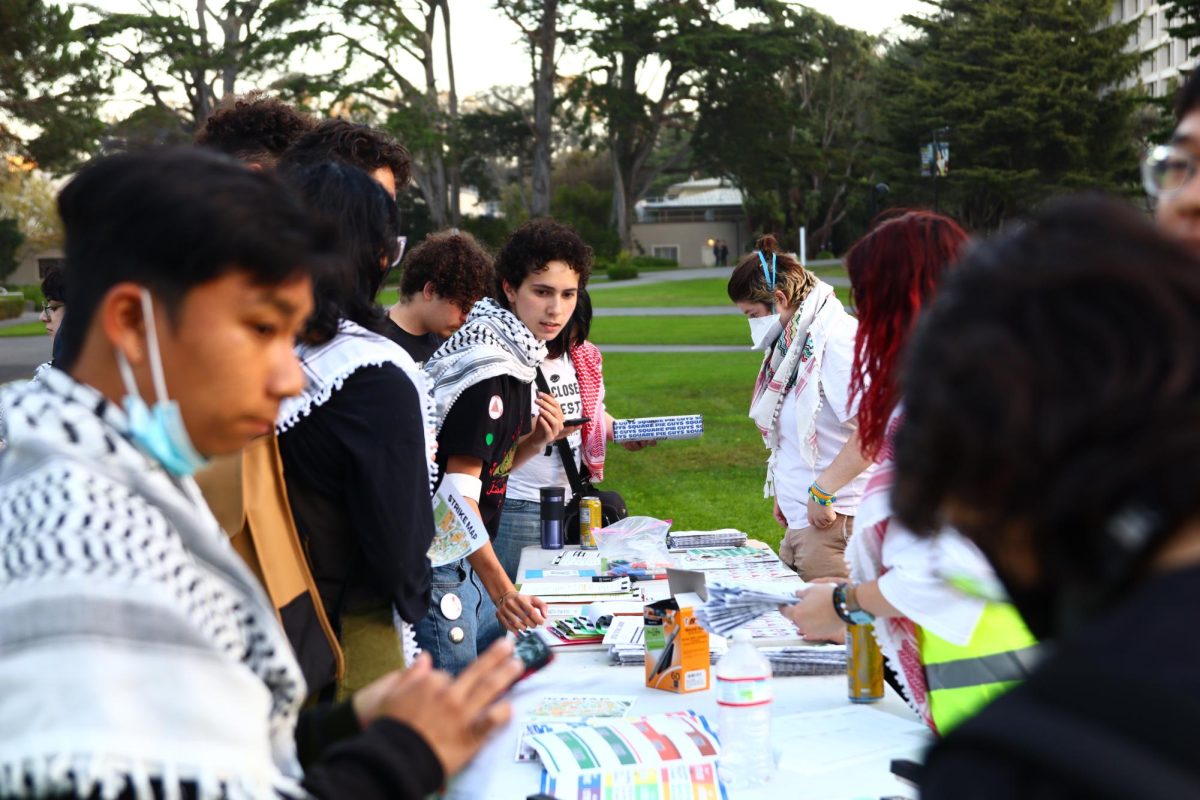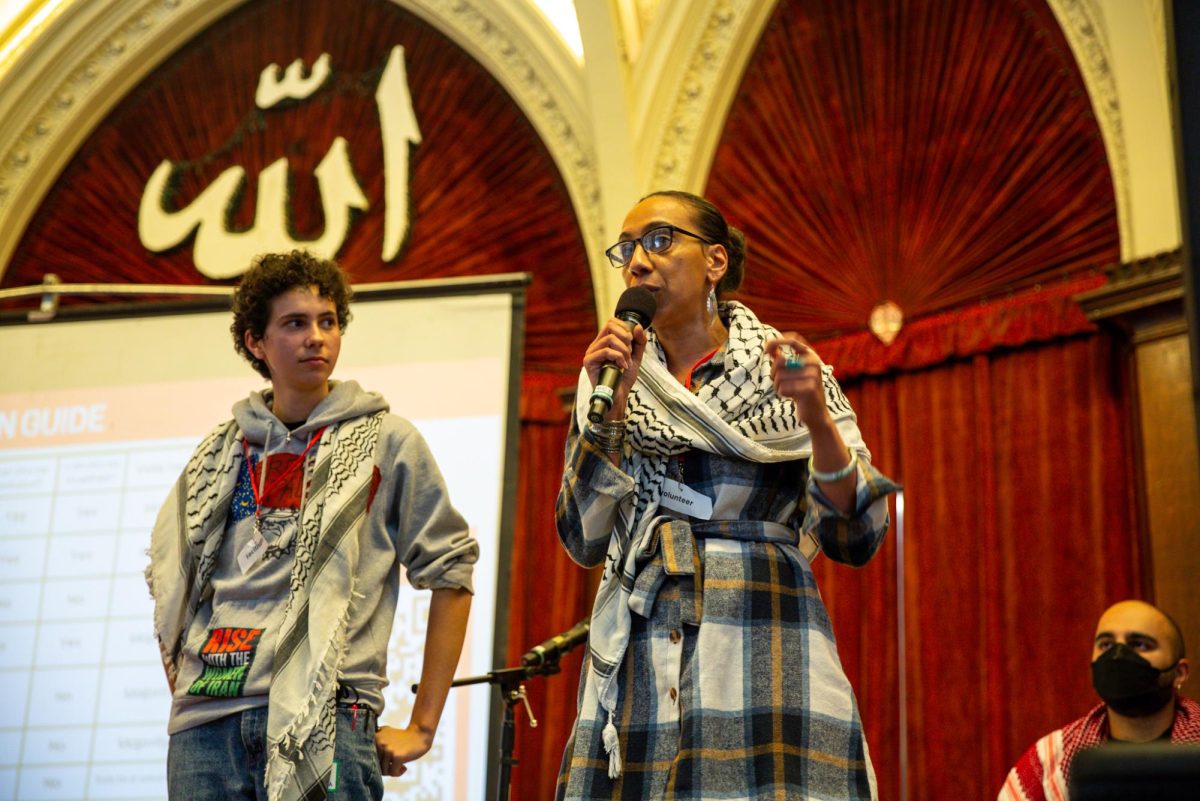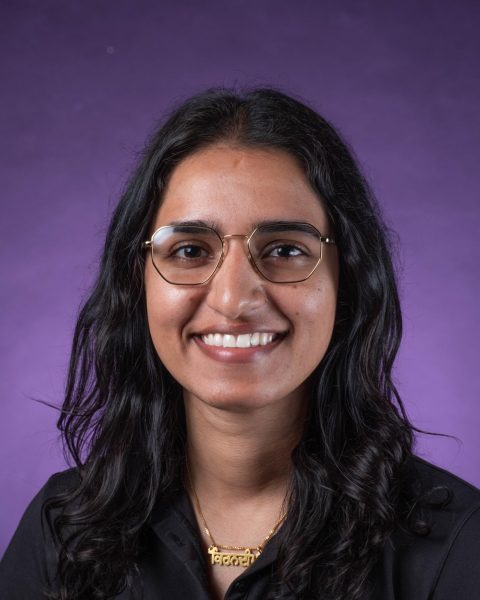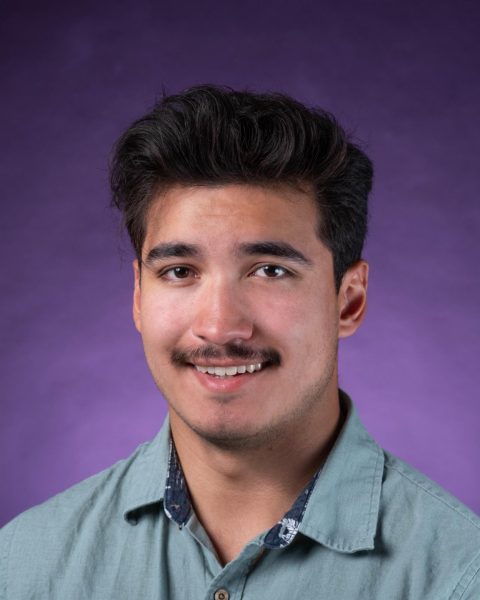At San Francisco State University, temporary shelters are held up by poles pinned to the green grass, replacing the roofed homes students called home with tents. Campers ready themselves mentally and physically, gathering food and blankets to withstand the Bay Area cold and stave off possible hunger.
One common goal has brought this community of campers together.
“There is a mixture of both students and the surrounding community showing up in flocks to come and join us to camp,” said S.F., a student who asked to be referred to only by initials. “We’ve doubled in size definitely since yesterday [Monday] and I’m only expecting it to keep on growing — and we have to keep on growing until all of our demands are met; until all of our money is divested from Israel.”
May 1 marks the third day of SFSU’s encampment, and participants are garnering support from various community members who want to do their part in aiding students during the protest. S.F. noticed the growth in external community support and internal community support that has embraced those who want to join the encampments in solidarity with Palestine.
At the encampment site, a signup sheet is available to those who want to camp but lack the tools to participate. Organizers have also established itineraries for each day to remind themselves of their goals, which include a call for a ceasefire and CSU divestment from Israel. Topics included creating committees for specific tasks, distributing flyers to spread the word to the SFSU community, and reminding campers of the true goal of participation in the encampments, which echoes several others in the CSU system and nationwide.
Approximately 50 to 60 students slept in the central quad the first night of the encampment, and more students joined in throughout the second day to participate in the demonstration.
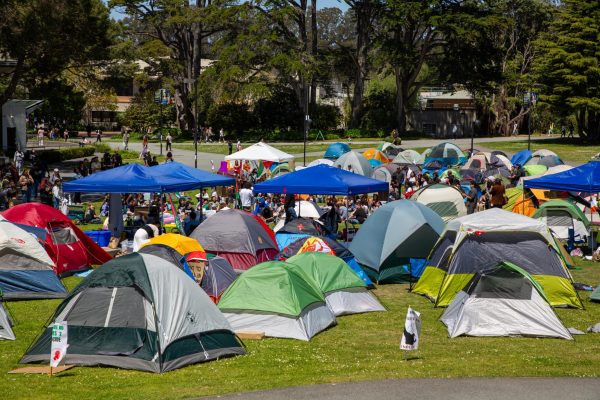
Inexperienced encampment members received assistance from seasoned campers like Charles, a student who, for security reasons, preferred to keep his last name undisclosed. Utilizing his prior camping experience, Charles aided others in setting up their camp gear.
“I’m a more experienced camper than a lot of other people, so I helped a lot of people set up their tents and stuff like that,” Charles said. “Everyone was, like, running around, looking for sleeping bags and stuff, and other people were just so tired from working all day and all the planning that went into this that they were just out — out like a light at, like, 9:30; then some people were laughing and playing games until well past midnight.”
A.N., a student who asked to be referred to only by initials, said that SFSU had taken action to accommodate students by providing port-a-potties and turning off sprinklers for the campers. However, A.N. said that, while appreciated, these actions will not deter campers from pursuing their ultimate goal: to have their demands met.
“They can do all of these little things to try and make us feel accommodated, but that doesn’t help the people in Gaza,” A.N. said. “What we’re here to do is to fight for the people in Gaza, and to stand in solidarity with them — and [SFSU administrators] have to show that they materially support that struggle. All of this is just little bells and whistles.”
Although the community of students are conversing and getting to know one another, A.N. said that participating in the encampment is not a frivolous pursuit — the peaceful environment does not distract from the bigger, common goal shared by all participants.
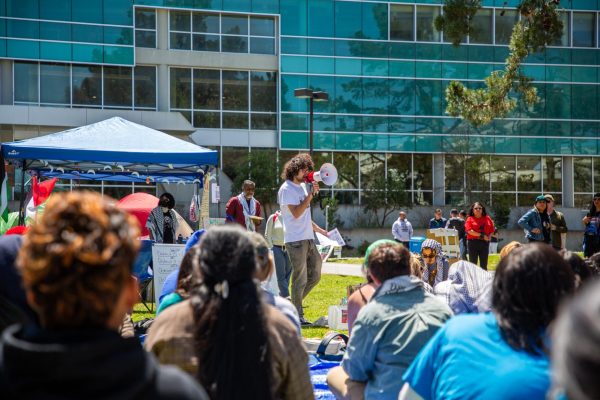
“It’s not just to build community, it’s not just to hang out — it’s to build a powerful movement that can end the genocide in Gaza,” A.N. said. “That is the thing that we’re focusing on. When people walk around this encampment, they have to be clear, they have to be honest to themselves. This is what we’re doing here. It’s cool. It’s communal, but ultimately, it’s about Gaza.”
Cal State Student Association released a statement on Instagram expressing its support for protesting students. CSSA president Dominic Quan Treseler issued a statement regarding the campus protests at several CSU campuses.
An excerpt from CSSA’s statement said:
“Any efforts to suppress our students’ fundamental rights to freedom of speech and to organize must be recognized as violations of the core values upheld by both this country and our university. We urge our university administration to support the rights of our students to peacefully protest by reducing intimidating police presence and ensuring a safe environment for demonstrations. At CSSA, we stand with and support our students wholeheartedly and maintain our resolve. We are nearly half a million voices, we are a powerful collective that will not be silenced.”
Charles appreciated students and community members showing interest in partaking in the encampment, as there is risk attributed to showcasing their support for the protest.
“I think that’s great because the larger the group the more impact and influence that we can have and the greater number of people that we can have to spread the message just for Gaza,” said Charles.





